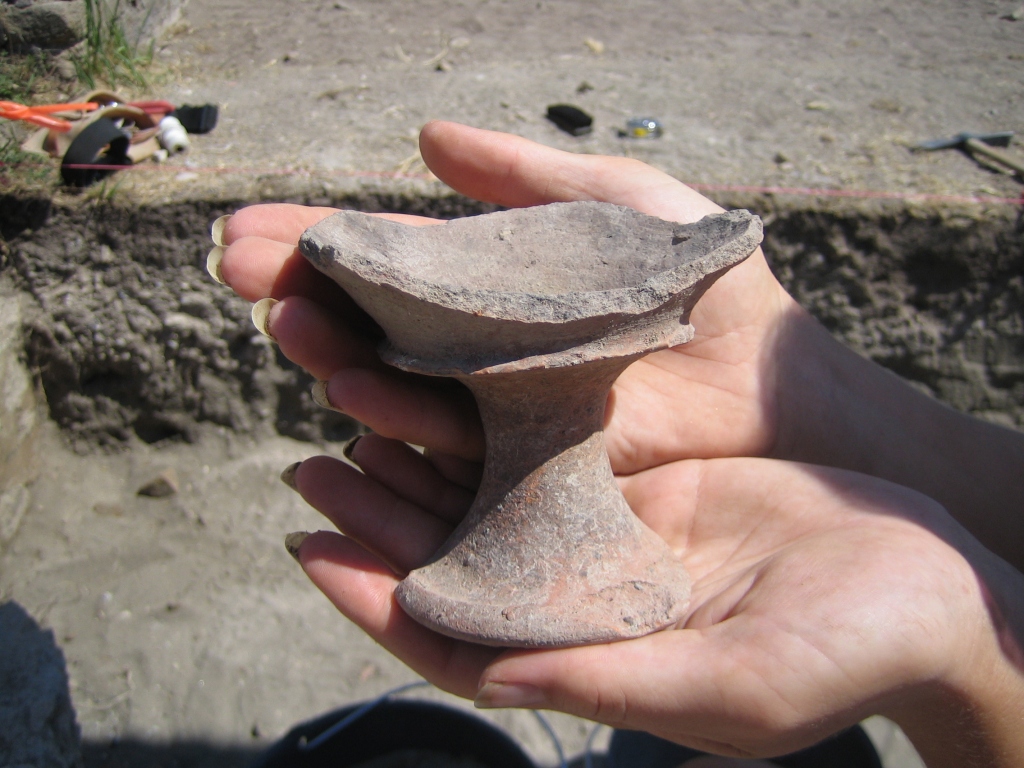Overview
Program Dates: June 29 – July 26, 2025
Program Location: Lugnano in Teverina, Italia
The Summer School in Roman Pottery is a unique opportunity for hands-on instruction in analyzing ceramics from the ancient Roman world with experts in Italy.
Successor to a program at the American Academy in Rome, the program is now independent and is offered through a collaboration with the Lugnano in Teverina Town Council and Civic Museum.
Although open to any applicant, the Rutgers Honors College is a proud supporter and encourages Honors College students to apply. Any selected participant from the Rutgers Honors College (New Brunswick) is eligible to apply for a $2,850 grant to cover the cost of the program. Please contact an Advisor or Dean for further information.
The program cost of $2,850 covers the cost of instruction, supplies, field trips, housing in a shared apartment in Lugnano, and partial board (lunch and dinner from Monday to Friday). Participants will be responsible for their own travel costs, travel/medical insurance, and incidental expenses.

The Summer School in Roman Pottery is a four-week program designed to introduce the participants to the analysis of ancient Roman pottery. In 2025, it will again be held in Lugnano in Teverina, a picturesque hill town north of Rome. The Civic Museum of Lugano houses the finds from the excavations of the Roman villa of Poggio Gramignano.
Potsherds are the most common finds on archaeological sites in the classical world. They offer important evidence for dating sites and are an invaluable resource for studies on trade relations and economic exchange, food consumption, and aspects of identity. Pottery studies are an essential part of any archaeological training, which can be learned only through direct contact with ceramic material.
Students will learn the fundamentals of Roman pottery through seminars, the hands-on examination of a ceramic assemblage, and field trips to an ancient production center and significant collections of material. In the first half of the summer school, overall concepts and specific ceramic classes with their characteristics, function, date, and provenience will be presented. In the second half, the participants will apply their knowledge to a pottery assemblage excavated nearby. This element is designed to give the participants practical experience by working intensively with the directors with the aim of publishing the assemblage. In both parts, the participants will be expected to work together as a small team.
Through organized or individual field trips, participants will also have a chance to extend their learning into other realms of pottery, archeology, and history including visits to Etruscan sites, museums, the ancient city of Orvieto, and more.
About the Instructors
The Summer School in Roman Pottery was founded in 2019 by a team of international scholars. The 2025 session will be directed by Professor Archer Martin and co-directed by Dr. Mary Jane Cuyler. Visit romanpotteryschool.org to learn more about the instructors and their leading scholarship in the field.
Eligibility
The Summer School dates for 2025 are June 29 to July 26. Graduate and qualified undergraduate students, junior faculty, professionals, and independent scholars in archaeology and any related field are encouraged to apply. There is a maximum of 6 participants so you are encouraged to apply as soon as possible as spaces fill quickly.
Application
Acceptances will be decided on February 28, 2025
Please submit a cover letter, a CV, and a letter of recommendation to info@romanpotteryschool.org. The cover letter should address the participant’s reasons for wishing to attend, any relevant experience in the field, ability to work in a team, and willingness to live with others in a communal situation.
For more information on the application and program, please visit: romanpotteryschool.org/apply
Questions
If you have any questions, please contact Dean Bowers.
FULL SOURCE: romanpotteryschool.org